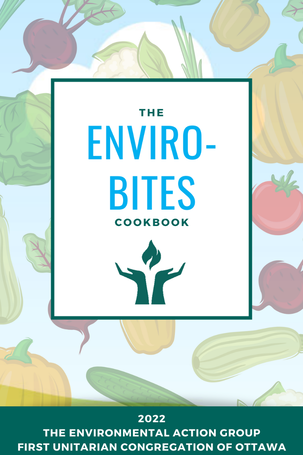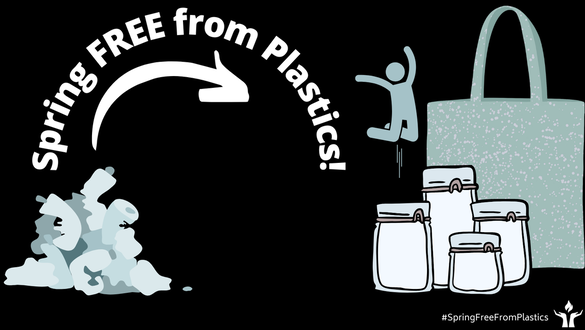Below, you'll find suggestions from our Environmental Action Group for activities and actions you can take that will enrich your life while you do your part to avert climate catastrophe and move us all towards a just and sustainable future.
share your time
Check out our list of environmental organizations active in Canada, choose one you would like to support, and become a volunteer or make a donation.
In 2020, the City of Ottawa published Energy Evolution, Ottawa's primary strategy to fight climate change.
It's enactment is at risk due to budget pressures and implementation delays. The 2022 draft budget prioritizes road expansion and transit fare increases, which will increase carbon emissions, over climate action.
Join with Ecology Ottawa: Demand of our new City Council sustained funding and direct action follow-through for our climate goals. Protecting, funding and implementing Energy Evolution is vital to achieving Ottawa's Green House Gases emission reduction targets.
It's enactment is at risk due to budget pressures and implementation delays. The 2022 draft budget prioritizes road expansion and transit fare increases, which will increase carbon emissions, over climate action.
Join with Ecology Ottawa: Demand of our new City Council sustained funding and direct action follow-through for our climate goals. Protecting, funding and implementing Energy Evolution is vital to achieving Ottawa's Green House Gases emission reduction targets.
Reduce your Environmental Paw Print
Many of us love the companionship of our pets. Canadians own about 8.2 million dogs and about 8.3 million cats. That's about 2 pets for every 5 humans! And that's only the cats and dogs! Just what environmental impact do all these loveable creatures have on our ecosystem?
Hint #1: Let's Start at the beginning.
Rather than buying a pet from a breeder, adopt one from a shelter: It helps to support surrendered pets who are already in the system.
Hint #2: Choose sustainable pet food!
Cats and dogs require high protein diets, but if this protein is derived mainly from mammals, it becomes a major contributor to greenhouse gas emissions. Some companies use insect protein as an excellent substitute for livestock. Research and choose companies with certification for sustainability, responsibility and traceability.
Hint #3: Dispose of your pet's waste sustainably.
Always clean up after your pets. In Ottawa, dog waste and kitty litter can be put in the green bin. Avoid materials with synthetic fragrances and chemicals, and those containing Silica or bentonite clay which are non-renewable and take hundreds of years to degrade.
Hint #4: Choose eco-friendly pet toys.
Find toys made out of sustainable and biodegradable materials. Use, or reuse, household items as toys. Find second hand toys instead of buying new ones. For a more in depth look at ways and reasons to raise your pets without plastic watch this webinar: Plastic Free Pet Care.
Hint #1: Let's Start at the beginning.
Rather than buying a pet from a breeder, adopt one from a shelter: It helps to support surrendered pets who are already in the system.
Hint #2: Choose sustainable pet food!
Cats and dogs require high protein diets, but if this protein is derived mainly from mammals, it becomes a major contributor to greenhouse gas emissions. Some companies use insect protein as an excellent substitute for livestock. Research and choose companies with certification for sustainability, responsibility and traceability.
Hint #3: Dispose of your pet's waste sustainably.
Always clean up after your pets. In Ottawa, dog waste and kitty litter can be put in the green bin. Avoid materials with synthetic fragrances and chemicals, and those containing Silica or bentonite clay which are non-renewable and take hundreds of years to degrade.
Hint #4: Choose eco-friendly pet toys.
Find toys made out of sustainable and biodegradable materials. Use, or reuse, household items as toys. Find second hand toys instead of buying new ones. For a more in depth look at ways and reasons to raise your pets without plastic watch this webinar: Plastic Free Pet Care.
Make a change in your kitchen
|
While the two biggest ways to reduce your household carbon footprint rely on (a) changing how - and how efficiently - we heat our homes, and (b) limiting our reliance on low-occupancy gas-powered vehicles, other ways to curb your carbon emissions can happen in your kitchen:
Click the image to the right to open the PDF for download. |
seasonal suggestions - small actions have big impacts
|
Check out this series of Enviro-Actions you can take to prepare your yard or garden for Winter - without disrupting your four- and six-legged neighbours' habitat!
Read our November Shift Suggestions for transition-season actions you can take to insulate your home and lower your emissions.
|
Looking for ways to green your gift-giving or make holiday decorating less dependent on plastic? Climate Action offers this selection of Holiday Hints for a Green Christmas that can be applied to birthdays, and other festive occasions, too.
The global fashion industry produces about 4% of global emissions, 30% of-which come from retail operations, personal use, and eventual disposal of items. Click HERE to download our tips on Lowering Your Fashion Footprint.
Food waste is serious problem increasing both global warming and social injustice. Want to decrease food wastage in your own home? Click HERE for some tips and tricks!
RELATED: Choosing locally farmed food is a great way to reduce your kitchen's carbon footprint while helping to maintain your region's foodshed. Click HERE for a list of farmers whose fruit, veggies, meat, eggs, honey, maple products, and dairy are available at Ottawa Farmers' Markets.
RELATED: Choosing locally farmed food is a great way to reduce your kitchen's carbon footprint while helping to maintain your region's foodshed. Click HERE for a list of farmers whose fruit, veggies, meat, eggs, honey, maple products, and dairy are available at Ottawa Farmers' Markets.
Taking an environmentally mindful approach to gift giving is about bringing thought and care not only to the person to whom we are giving, but to what we are giving and its effects on the environment. This means looking at the life history of the gift: What materials it is made of, where it was made, who made it, how long it will be used, and how will it be disposed of.
Week 4 Action: If the gift is travel to be with friends and family, what actions can you take to limit your emissions? If loved ones live across distances, you could reduce travel miles by finding a central location to come together. If you must travel by air: fly economy; take direct flights whenever possible; choose to go to one destination and stay longer; fly during the daytime; choose airlines carefully; and invest in high quality carbon offsets. Check out this Green Holiday Guide for more!
Week 3 Action: Become a thriftmaser: for those who love Christmas but hate the waste you can celebrate Thiftmas! That's where you source everything you want for the season second-hand, from presents and clothing to decorations. Some families have extended the idea and live as thriftmasers all year long! Read on for ideas!
Week 2 Action: In this season's Spire, page 10, we included an article talking about how we might participate in clutter free giving. This week's action is to take a look at that article. You can probably think of many more ideas which you could share and you can always check out our To Act page for even more ideas.
Week 1 Action: Spend an hour on this very useful webinar, Plastic Free Presents: Mindful Gifting for Healthier Holidays. It is well worth your time to hear the presenters: Lots of information and ideas. Check it out HERE.
Week 4 Action: If the gift is travel to be with friends and family, what actions can you take to limit your emissions? If loved ones live across distances, you could reduce travel miles by finding a central location to come together. If you must travel by air: fly economy; take direct flights whenever possible; choose to go to one destination and stay longer; fly during the daytime; choose airlines carefully; and invest in high quality carbon offsets. Check out this Green Holiday Guide for more!
Week 3 Action: Become a thriftmaser: for those who love Christmas but hate the waste you can celebrate Thiftmas! That's where you source everything you want for the season second-hand, from presents and clothing to decorations. Some families have extended the idea and live as thriftmasers all year long! Read on for ideas!
Week 2 Action: In this season's Spire, page 10, we included an article talking about how we might participate in clutter free giving. This week's action is to take a look at that article. You can probably think of many more ideas which you could share and you can always check out our To Act page for even more ideas.
Week 1 Action: Spend an hour on this very useful webinar, Plastic Free Presents: Mindful Gifting for Healthier Holidays. It is well worth your time to hear the presenters: Lots of information and ideas. Check it out HERE.



